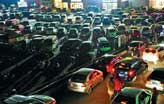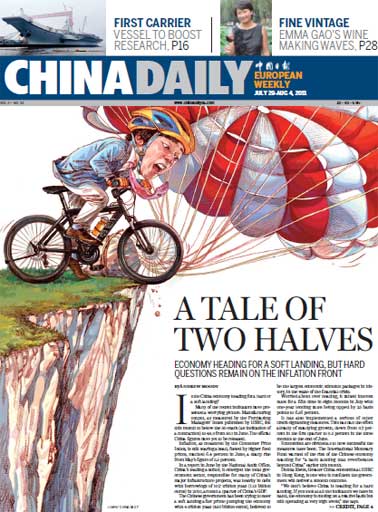Op-Ed Contributors
Time to reconsider buying of US assets
Updated: 2011-08-04 08:02
By Dean Baker (China Daily)
While the Chinese government made it clear that it was unhappy about the possibility that the United States could default on its debt, it was also clear that China's concerns are not a major factor in US politics.
The United States has always been an incredibly insular country. The vast majority of the public has very little interest in or concern for what is going elsewhere in the world, except insofar as it directly affects the US.
There is also a remarkable degree of ignorance about the rest of the world, not just among the public at large, but also among our political leaders.
As a result, when other countries raise concerns about US domestic policies they are likely to be at best ignored, if not actually resented. The response to China's expression of concern over the US debt fell somewhere between these two positions.
The budget debate in the US is always clouded by an enormous degree of deliberate exaggeration and obfuscation. While politicians of both parties like to complain about an out of control deficit threatening the country with bankruptcy, the reality is that the deficit was reasonably well contained (even if arguably too high) prior to the collapse of the economy in 2008.
The large deficits that the country has experienced in recent years are counter-cyclical. They are the result of efforts to prop up the economy in the wake of the collapse in private sector demand. The idea that they are due to out of control spending or excessive tax cutting is nonsense.
Furthermore, the dire long-term picture is almost entirely a result of the broken US healthcare system. The US pays more than twice as much per person for its healthcare than other wealthy country. And this disparity is projected to grow in coming decades. If it does, it will have devastating consequences for the budget since more than half of US healthcare is paid through public sector programs like Medicare and Medicaid.
This projected explosion in healthcare costs would have a devastating impact on the private sector as well. It points to the need to fix the healthcare system, not the budget.
However, because of the power of the healthcare industry, it is much easier politically to roll back benefits in public sector programs than to reduce the cost of healthcare, which would mean reducing the income of providers. Therefore our politicians only discuss the healthcare crisis as a budget crisis. So we get the illusion of a long-term budget crisis.
This is the situation that China's government is walking into with its complaints about the risk of a default on its debt. As a matter of fact, the prospect of defaulting on debt to China is actually likely to have considerable popularity among large segments of the public. Many politicians have actively exploited anti-China sentiments, especially in reference to its ownership of US debt.
The view that US government deficits pose a problem because much of the debt is owed to China is not just an argument made by a small number of xenophobes. It is often repeated in respectable circles by political leaders and respected columnists. As a practical matter this argument is incredibly confused.
US borrowing from China depends on its trade deficit, not its budget deficit. The trade deficit is what gives China the dollars to buy US assets of all types, including US government bonds. However the willingness of prominent politicians to use an obviously fallacious argument to raise concerns about China shows the extent to which it has come to be seen as an enemy in political debates.
Any threat by China to stop buying government debt is no threat at all. It would lead to a rise in the yuan against the dollar.
The response to China's concerns over the risk of US default may help educate its policymakers that its current path of buying up massive amount of US assets to support the value of the dollar is not a viable long-term strategy for both political and economic reasons. This realization would be a very positive outcome from this mess.
The author is co-director of the Center for Economic and Policy Research in Washington, DC.
(China Daily 08/04/2011 page8)
E-paper

Double vision
Prosperous Hangzhou banks on creative energies to bridge traditional and modern sectors
Minding matters
A touch of glass
No longer going by the book
Specials

Ancient plate broken
An ancient porcelain plate was accidentally destroyed during a research in the Palace Museum.

Selfless actions
A 20-year-old girl becomes an Internet star for giving her first kiss to a drowning old man.

Space race
Homebuyers are learning the hard facts of supply and demand: too many cars and too few parking spaces.
